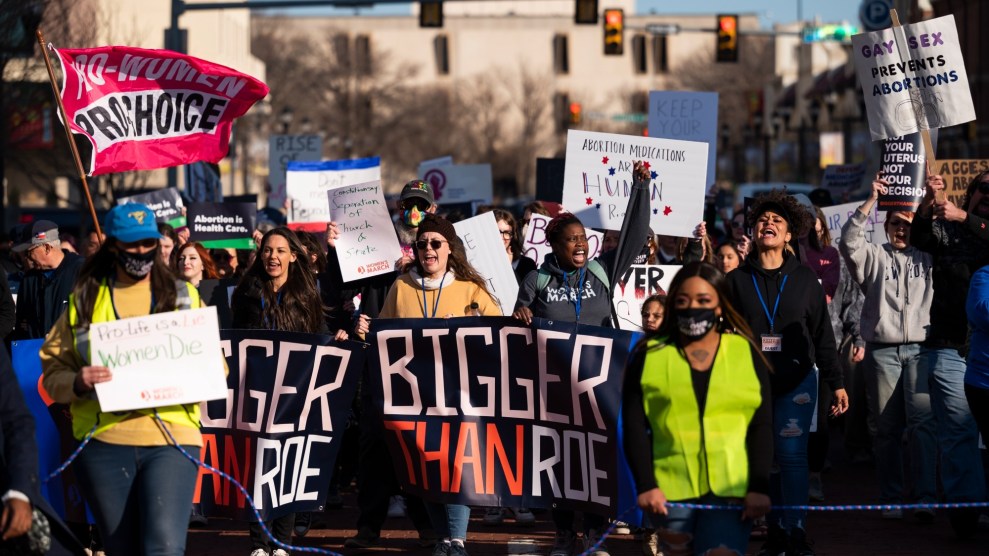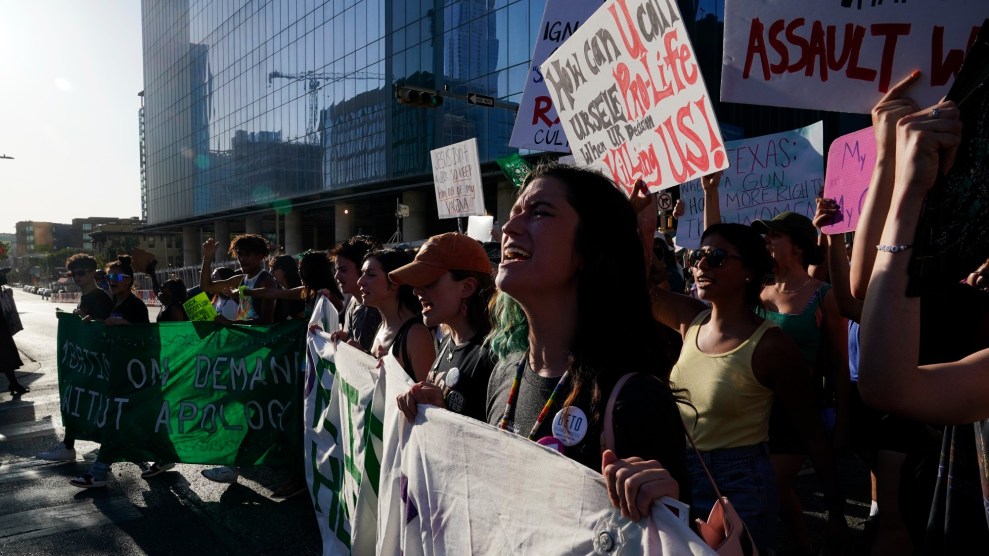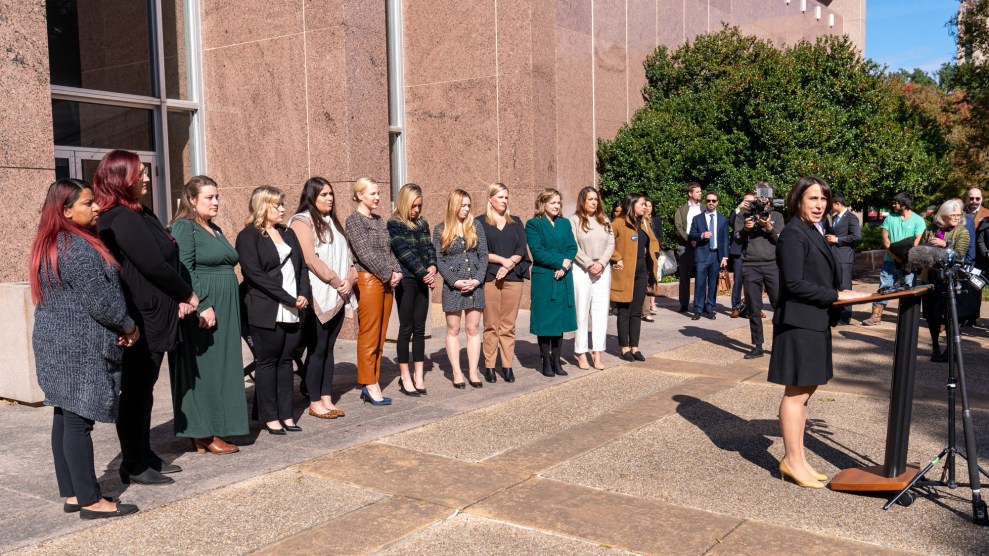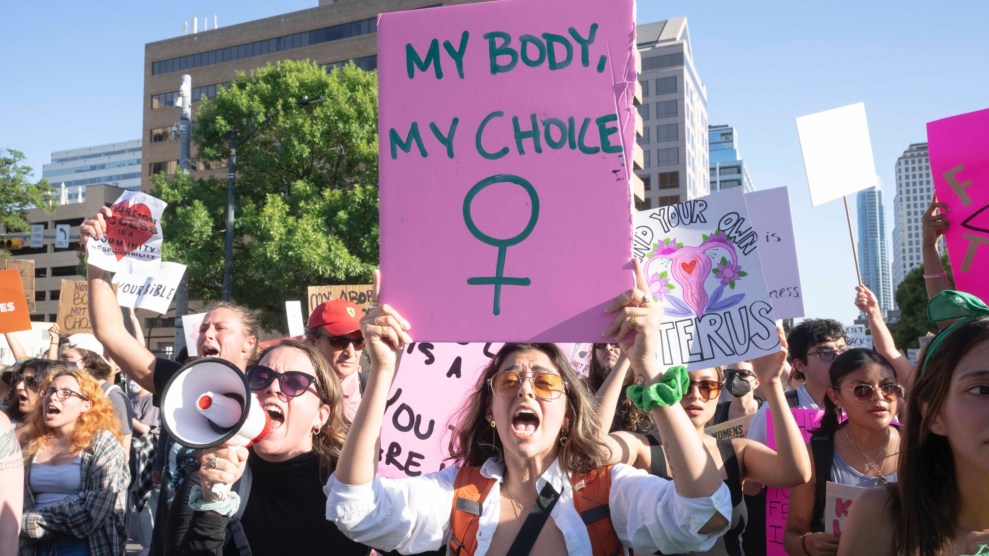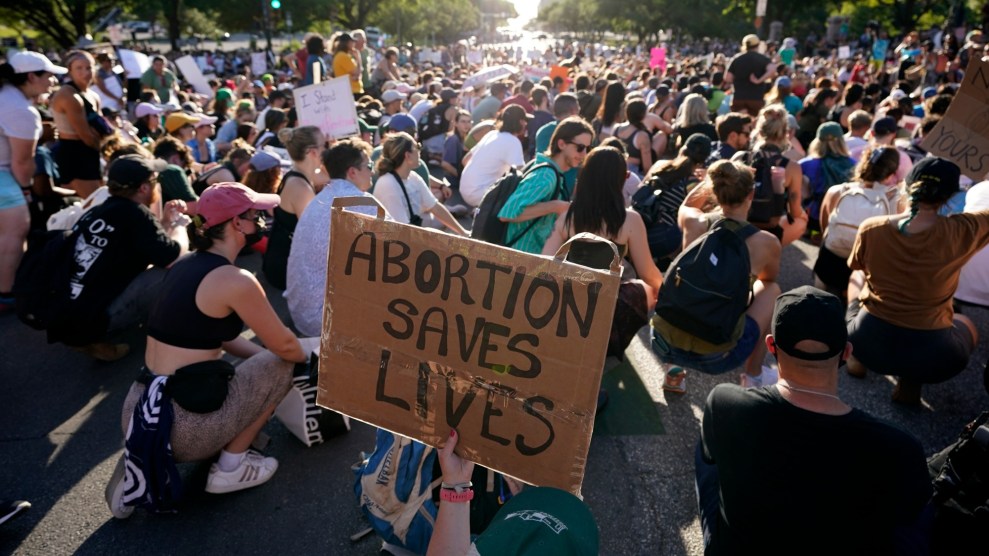
Eric Gay/AP
Update, December 11: The Texas Supreme Court overturned the lower court order on Monday, ruling against Kate Cox, her husband, and the medical team, hours after Cox announced she fled the state for emergency abortion care. In the seven-page ruling, the court said that doctors had not proven “that Ms. Cox’s condition poses the risks the exception requires.”
Kate Cox, the woman at the center of a Texas court case to terminate her pregnancy for medical reasons, has been forced to leave the state for care, according to the Center for Reproductive Rights.
Last week, Cox filed a petition for a temporary restraining order to halt enforcement of Texas’ near total abortion ban so she could undergo an emergency termination of her pregnancy. Cox’s petition was the first time since Roe was decided in 1973 that an adult pregnant person asked a court for permission to get an abortion.
In a historic ruling, lower court Judge Maya Guerra Gamble said Cox could receive the care. But within hours, state Attorney General Ken Paxton sent a threatening letter to the employers of Cox’s doctor. “We feel it is important for you to understand the potential long-term implications if you permit such an abortion to occur at your facility,” the letter said. Paxton then appealed the ruling to the Texas Supreme Court.
Late Friday night, one day after Cox was granted permission to terminate her pregnancy, the Supreme Court justices temporarily stayed the lower court ruling leaving Cox in a holding pattern, waiting to see if she could get an abortion in Texas.
“This past week of legal limbo has been hellish for Kate,” Nancy Northup, president and CEO at the Center for Reproductive Rights, said. “Her health is on the line. She’s been in and out of the emergency room and she couldn’t wait any longer.”
The Center for Reproductive Rights, who is representing Cox, are not disclosing her whereabouts as she seeks care out of state.
On Monday evening, the Texas Supreme Court said that doctors had not proven “Cox’s condition poses the risks the exception requires,” ruling against Cox.
Cox, who is around 21 weeks pregnant, is terminating for medical reasons in a wanted pregnancy. In late November, she learned that her fetus was diagnosed with full trisomy 18, a chromosomal disorder that causes fetuses to die before or soon after birth. Each day that passes is a risk to her health. The pregnancy, her petition read, “puts her at high risk for severe complications threatening her life and future fertility, including uterine rupture and hysterectomy.”
Texas’ current law calls on providers to exercise “reasonable medical judgment” in ascertaining if the pregnant person “has a life-threatening physical condition aggravated by, caused by, or arising from a pregnancy” that poses “risk of death or poses a serious risk of substantial impairment of a major bodily function unless the abortion is performed or induced.” Cox’s providers, in the initial appeal to the lower court, said they did not know if they were legally protected under the state’s medical exceptions to the abortion ban, and said their “hands are tied” on such matters.
The Texas Supreme Court is currently considering another case brought by the Center for Reproductive Rights about medical exceptions to the state’s abortion ban. The Center is representing 20 patients and two doctors in Zurawski v. State of Texas. Their lawsuit argues that the abortion ban’s language about medical exceptions is too vague for providers and will harm pregnant people.
The case is the first time that directly impacted pregnant people have sued their state over a post-Roe law.
How the Texas Supreme Court responds to these two overlapping cases will have an immense impact across the country, as pregnant people and their allies consider bringing challenges to their state-level bans on access to life-saving and affirming healthcare. The Center has brought similar suits in Tennessee, Idaho, and Oklahoma.
“She desperately wanted to be able to get care where she lives and recover at home surrounded by family,” Northup said today. “While Kate had the ability to leave the state, most people do not, and a situation like this could be a death sentence.”
For pregnant people like Kate Cox, traveling out of state is medically dangerous. Pregnancy-related complications like the ones that she’s been enduring can require immediate care, and hours-long journeys without clear hospital availability can be life-threatening.
“I do not want to put my body through the risks of continuing this pregnancy,” Cox said in her petition. “I do not want to continue until my baby dies in my belly or I have to deliver a stillborn baby or one where life will be measured in hours or days.”

